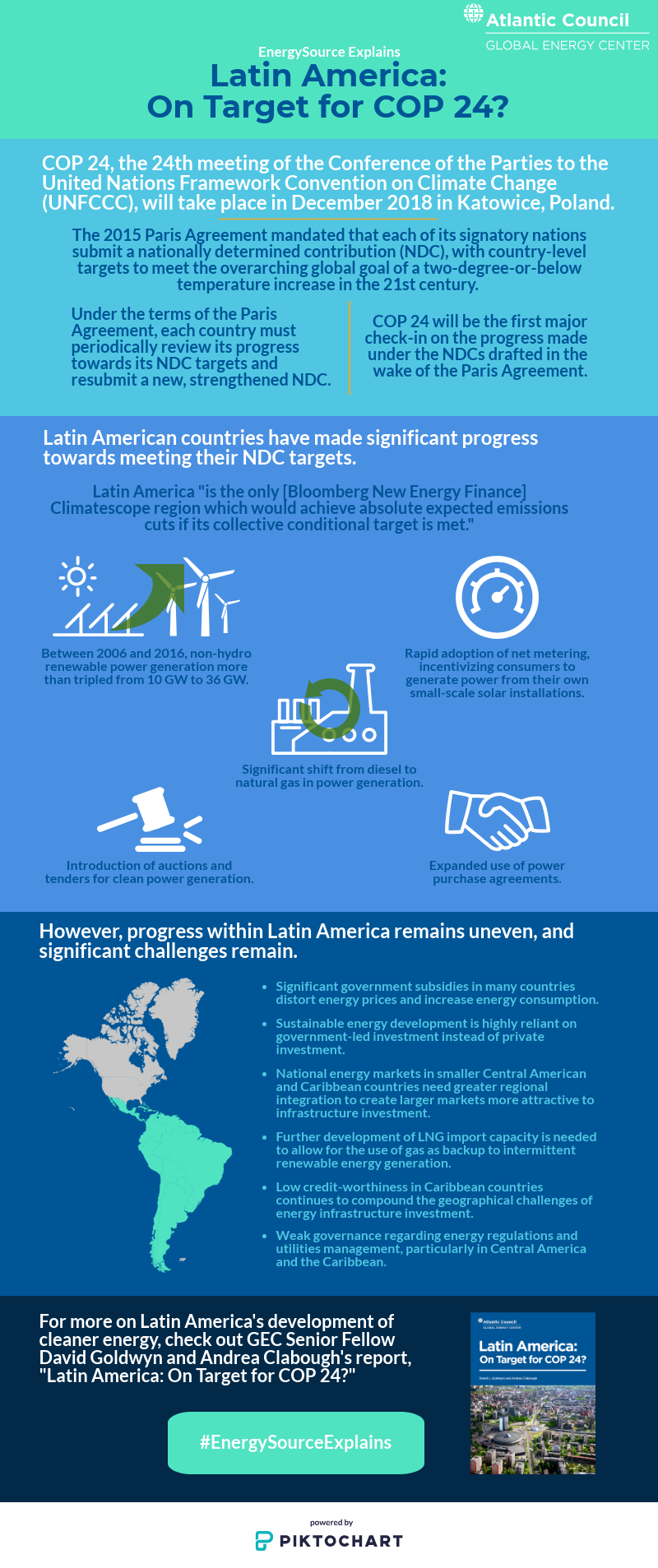In a new report, Atlantic Council Energy Advisory Group Chairman and Adrienne Arsht Latin America Center Senior Fellow David Goldwyn and co-author Andrea Clabough examine the progress Latin American countries, including the Southern Cone countries, Central America, and the Caribbean, have made in working toward their climate goals, with a focus on modernization and improved sustainability of the countries’ energy systems.
The Issue: In December 2018, countries will meet in Katowice, Poland for the 24th Conference of the Parties to assess progress towards their commitments under the Paris Agreement. In advance of that meeting, Latin American countries have made impressive—if uneven—strides toward their climate goals, but serious challenges remain in many countries.
Latin American Regions at a Glance
1. The Southern Cone: Integrating Renewables
Encompassing some of the leading Latin American economies—as well as the region’s largest emitters—the Southern Cone countries have by and large made notable progress in modernizing their energy systems. Brazil is both a regional and a global leader in renewable investment and deployment. Chile and Mexico have likewise made strides in fostering competitive markets for renewables through supportive regulatory and policy environments. However, across the Southern Cone there is room for improvement when it comes to grid modernization, including integrating digital technologies into the power sector.
2. Central America: Coordination and Integration
Central America still largely relies on petroleum fuels for power, and progress on energy development and modernization in the region remains stalled by electricity subsidies, underscoring the challenges countries face in terms of energy governance and utilities management. However, regional exemplar Costa Rica provides a glimpse of the role constructive policies can play in fostering progress.
3. The Caribbean: Help Needed
Caribbean countries face a number of challenges in meeting their climate goals, including small economies, lack of scalability, limited prospects for economic growth, a continued reliance on conventional fossil fuels, and difficulty securing investment. Drawing on the lessons from its Southern Cone and Central American neighbors, the region can utilize policy, regulatory, and fiscal tools deployed throughout the region to improve the investment environment and modernize energy systems.
The Path Forward: “National governments, international and regional organizations, and the US government can all play a role in helping Latin American governments continue to build on the progress made already as COP 24 draws closer, and retain Latin America’s position as a region in the lead in pursuing major systemic changes.”
